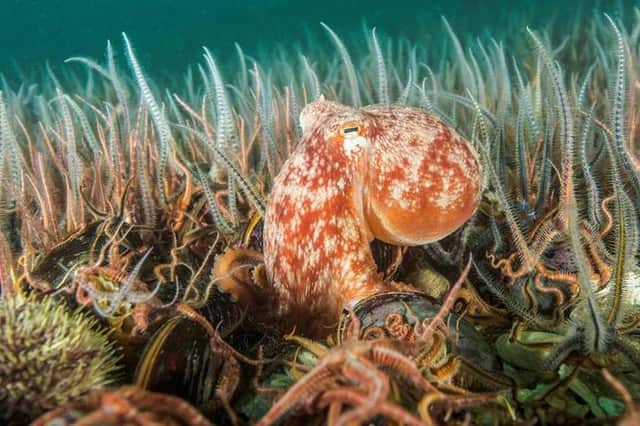Call for ban on bottom-trawling in 'protected' seas


A report from the Marine Conservation Society has found that bottom-trawling or dredging are taking place in 98 per cent of offshore marine protected areas (MPAs) around the country.
Bottom-towed fishing gear not only destroys vital underwater habitats but also rips up the seafloor and releases carbon, potentially driving climate change.
Advertisement
Hide AdAdvertisement
Hide AdA site in Scottish waters, Central Fladen in the northern North Sea, is one of the most heavily targeted.
Other protected places enduring intensive trawling include special areas of conservation (SACs) at Margate and Long Sand, off the Kent coast, and Haisborough, Hammond and Winterton, off the Norfolk coast.
Studies show the three sites have been fished across almost their entire surface area.
UK, Belgian, and Dutch fleets were the dominant vessels operating in these MPAs respectively.
The research found that fishing activity inside protected areas continues unabated.
Key findings show all but one offshore MPA was fished by bottom-trawlers and dredgers between 2015 and 2018, with such vessels spending at least 90,000 hours harvesting the seabed inside these areas over the period.
It's estimated that carbon emissions released by bottom trawling across the UK continental shelf between 2016 and 2040 could cost up to £9 billion to mitigate in other areas of the economy.
Only five per cent of UK MPAs currently ban bottom trawling.
Advertisement
Hide AdAdvertisement
Hide AdThe report also shows areas designated as Marine Conservation Zones in 2019 experienced the highest fishing rates of all MPAs assessed between 2015 and 2018.
Despite that protection, there are no fishing restrictions to prevent this level of fishing continuing.
Conservationists say allowing trawling and dredging is equivalent to “bulldozing a national park on land” and are now calling for an outright ban on bottom-trawling in protected areas to allow habitats to recover and curb greenhouse gas emissions.
Dr Jean-Luc Solandt, principal specialist in MPAs at the Marine Conservation Society, says the research demonstrates that MPAs are failing to safeguard marine habitats.
“While bottom-trawling is still allowed we will continue to release more carbon from the seafloor and prevent complex carbon-storing habitats from recovering,” he said.
“Without a ban on this form of fishing these areas of our seas simply aren’t recovering and we’re missing a crucial opportunity to combat climate change and ensure there are indeed plenty more fish in the sea.”
Scottish-based sustainable fisheries campaign group Open Seas is backing calls for a ban.
Nick Underdown, head of campaigns at Open Seas, says the Scottish Government’s decision to allow trawling to resume within the West Shetland Shelf MPA, contrary to scientific advice, stands as a stark example of bad management of marine resources.
Advertisement
Hide AdAdvertisement
Hide Ad“The claim that more than 30 per cent of our seas are protected by MPAs is a prime example of the Scottish Government bluewashing their failed targets on marine conservation and fisheries sustainability targets,” he said.
“Many of Scotland’s MPAs have no protection at all from bottom-trawling.
“Paper designations are worse than useless, because they give the illusion of protection, when in fact the health of Scotland’s seas is deteriorating.
“The Scottish Government needs to put urgent limits on the damaging footprint of bottom-trawling and dredging.”
A message from the Editor:
Thank you for reading this article. We’re more reliant on your support than ever as the shift in consumer habits brought about by coronavirus impacts our advertisers.
If you haven’t already, please consider supporting our trusted, fact-checked journalism by taking out a digital subscription. Visit https://www.scotsman.com/subscriptions now to sign up.
Comments
Want to join the conversation? Please or to comment on this article.